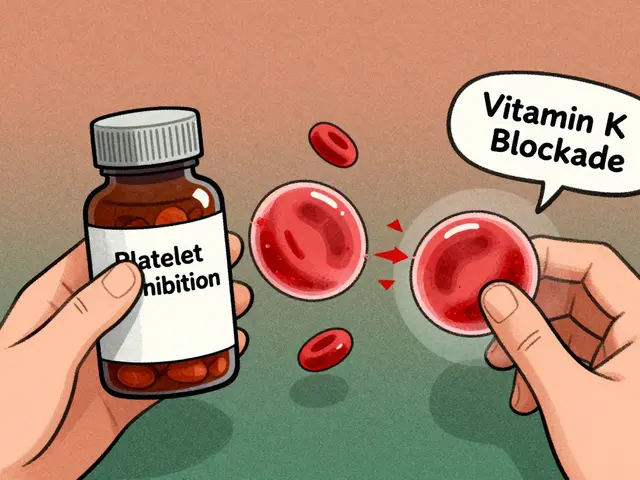Understanding Diabetes and Ischemia
Before diving into the link between diabetes and ischemia, it's important to understand what these two conditions are. Diabetes is a chronic disease that affects how your body processes glucose, the main source of energy for your cells. There are two main types of diabetes: type 1 and type 2. Both can lead to high blood sugar levels, which can damage your blood vessels and nerves over time.
Ischemia, on the other hand, refers to a lack of blood supply to a certain area of the body, usually due to a blocked or narrowed blood vessel. This can lead to tissue damage and, in severe cases, tissue death. Ischemia can affect various parts of the body, including the heart, brain, and limbs.
The Connection Between Diabetes and Ischemia
Now that we have a basic understanding of diabetes and ischemia, let's explore their connection. People with diabetes are at a higher risk of developing ischemia, particularly in the heart, brain, and limbs. This is because high blood sugar levels can damage blood vessels, leading to atherosclerosis (hardening and narrowing of the arteries).
Atherosclerosis can impede blood flow and increase the risk of ischemia. Additionally, people with diabetes may have other conditions that contribute to ischemia, such as high blood pressure and high cholesterol levels.
Diabetic Heart Disease and Ischemic Heart Disease
Diabetic heart disease is a term used to describe the various heart problems that can occur in people with diabetes. One of the most common forms of diabetic heart disease is ischemic heart disease, which is caused by atherosclerosis in the coronary arteries. This can lead to chest pain (angina), heart attacks, and heart failure.
Unfortunately, people with diabetes are at a higher risk of developing ischemic heart disease and experiencing more severe symptoms. They also have a higher likelihood of experiencing silent heart attacks, which can be especially dangerous because they often go undetected.
Diabetes and Ischemic Stroke
Ischemic stroke is another condition that can be linked to diabetes. An ischemic stroke occurs when a blood clot blocks blood flow to the brain, depriving brain cells of oxygen and nutrients. This can lead to brain damage and, in severe cases, death.
People with diabetes are twice as likely to experience an ischemic stroke compared to those without diabetes. This increased risk is due to the damage that high blood sugar levels can cause to the blood vessels, making it more likely for blood clots to form and block blood flow to the brain.
Diabetic Peripheral Artery Disease and Ischemic Limb Disease
Diabetic peripheral artery disease (PAD) is a type of peripheral vascular disease that affects the blood vessels in the limbs, particularly the legs. PAD is characterized by atherosclerosis, which narrows and hardens the arteries, reducing blood flow to the limbs. This can lead to pain during physical activity, slow-healing wounds, and, in severe cases, amputation.
Ischemic limb disease is a severe form of PAD that can lead to tissue death and amputation if not treated promptly. People with diabetes are at a much higher risk of developing PAD and ischemic limb disease due to the damage that high blood sugar levels can cause to the blood vessels.
Preventing Ischemia in People with Diabetes
The best way to prevent ischemia in people with diabetes is to properly manage the condition by maintaining healthy blood sugar levels. This can be achieved through a combination of lifestyle changes, such as eating a balanced diet, exercising regularly, and quitting smoking, and medication, as prescribed by your healthcare provider.
It is also crucial to monitor and manage other risk factors for ischemia, such as high blood pressure and high cholesterol levels. Regular check-ups with your healthcare provider can help detect any early signs of blood vessel damage and ischemia, allowing for prompt treatment and a better chance of preventing complications.
Recognizing the Symptoms of Ischemia
Early detection of ischemia is key to preventing complications and damage to your organs and limbs. It's important to be aware of the symptoms of ischemia, which can include:
- Chest pain or discomfort (angina)
- Shortness of breath
- Weakness or numbness on one side of the body
- Difficulty speaking or understanding speech
- Sudden, severe headache
- Leg pain during physical activity
- Slow-healing wounds on the feet or legs
If you experience any of these symptoms, it's important to seek medical attention promptly, as early treatment can help prevent further damage and complications.
Conclusion
Diabetes and ischemia are closely linked, with people with diabetes being at a higher risk of developing ischemic conditions such as heart disease, stroke, and limb disease. By managing your diabetes effectively and being aware of the symptoms of ischemia, you can reduce your risk of complications and maintain a healthier life. Remember to always consult with your healthcare provider for personalized advice and support in managing your diabetes and preventing ischemic complications.








14 comments
Ikenga Uzoamaka
This is such a vital post!!! But why is everyone ignoring the fact that Big Pharma doesn't want you to know how much sugar is in EVERYTHING??!!! I've seen my cousin lose a foot and they still sold him soda at the hospital!!!
Lee Lee
One must consider the epistemological framework through which medical authority is constructed. The correlation between diabetes and ischemia is statistically significant, yet it is merely a construct of the biomedical hegemony. What if ischemia is not a disease, but a natural recalibration of the body's energy flow? The pharmaceutical-industrial complex profits from pathologizing normal physiological responses.
John Greenfield
You're all missing the point. Diabetes isn't the problem - it's the insulin industry. They invented diabetes to sell pumps and pens. The real cause of ischemia? Electromagnetic pollution from 5G towers weakening capillary integrity. The FDA knows. They've been silencing research since '98.
Dr. Alistair D.B. Cook
I mean... I get it, but... have you ever considered that maybe... the body's just trying to tell you something? Like... maybe you're eating too many carbs? Or... maybe you're not walking enough? Or... maybe you're just... stressed? I mean, I'm not a doctor, but I read a blog once...
Allen Jones
I've been monitoring this since 2017... and I'm telling you... the government is using diabetes data to track our blood sugar patterns via smart fridges and Fitbits... they're building a metabolic surveillance state... 😔👁️
jackie cote
If you have diabetes, manage it. Eat clean, move daily, test regularly. No magic pills. No conspiracy. Just discipline. You're not powerless.
ANDREA SCIACCA
This is why America is dying. We let corporations dictate our health. We eat sugar like it's candy and then wonder why our legs rot. It's not just diabetes - it's cultural collapse. We traded wisdom for convenience. Now we pay with our limbs. America, wake up.
Camille Mavibas
I used to be pre-diabetic... then I started walking 20 mins a day and swapped soda for sparkling water 🥤➡️💧... lost 30 lbs in 6 months. No meds. Just small changes. You got this. 💪❤️
Shubham Singh
I lost my uncle to diabetic foot amputation. He didn't believe in doctors. Said 'God will heal.' He died screaming. Now I check my feet every night. No one should suffer like that. This isn't just medical advice - it's survival.
Hollis Hamon
I appreciate the clarity here. Many people don't realize how systemic the damage is - it's not just the heart or the brain, it's the whole vascular network. Small daily habits matter more than we think. Consistency > intensity.
Adam Walter
Let me tell you something wild - in rural India, where people eat whole grains, lentils, and zero processed sugar, type 2 diabetes was almost unheard of until the 90s. Now? It's skyrocketing. Why? Because Coca-Cola and McDonald's moved in. The real villain isn't insulin - it's industrial food. Your body didn't evolve for high-fructose corn syrup. It evolved for beans, greens, and sunlight.
Gurupriya Dutta
I've been reading about this since my mom was diagnosed. I never knew how connected everything was - the feet, the heart, the brain. It makes me want to learn more. Thank you for explaining it so clearly.
Michael Lynch
I used to think diabetes was just about sugar. Then I saw my neighbor's leg turn black. Now I get it - it's not the sugar itself, it's what it does to your blood vessels over time. Like rust in pipes. Slow. Silent. Deadly. I started walking after dinner. Small step. Big difference.
caroline howard
Wow. So you're telling me the only thing standing between me and losing my toes is... not eating a whole cake? Shocking. 🙃